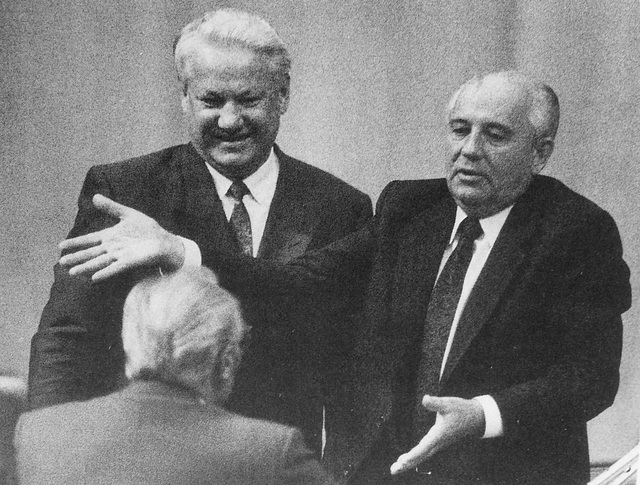Keywords
Authorizations, license
-
Visible by: Everyone -
Attribution + non Commercial
- Photo replaced on 19 Mar 2020
-
65 visits
Gorbachev


Gorbachev and Yeltsin at the Extraordinary Congress of Peoples
Deputies, September 3, 1991
Deputies, September 3, 1991
- Keyboard shortcuts:
Jump to top
RSS feed- Latest comments - Subscribe to the comment feeds of this photo
- ipernity © 2007-2024
- Help & Contact
|
Club news
|
About ipernity
|
History |
ipernity Club & Prices |
Guide of good conduct
Donate | Group guidelines | Privacy policy | Terms of use | Statutes | In memoria -
Facebook
Twitter

www.nobelprize.org/prizes/peace/1990/gorbachev/facts
'Our country has not been lucky. It was decided to carry out this Marxist experiment on us. In the end we proved that there is no place for this idea - it has simply pushed us off the path taken by the world's civilized countries.' ~ Boris Yeltsin, 1991 ~ page 637 (Excerpt: "Post War" ~ Tony Judith